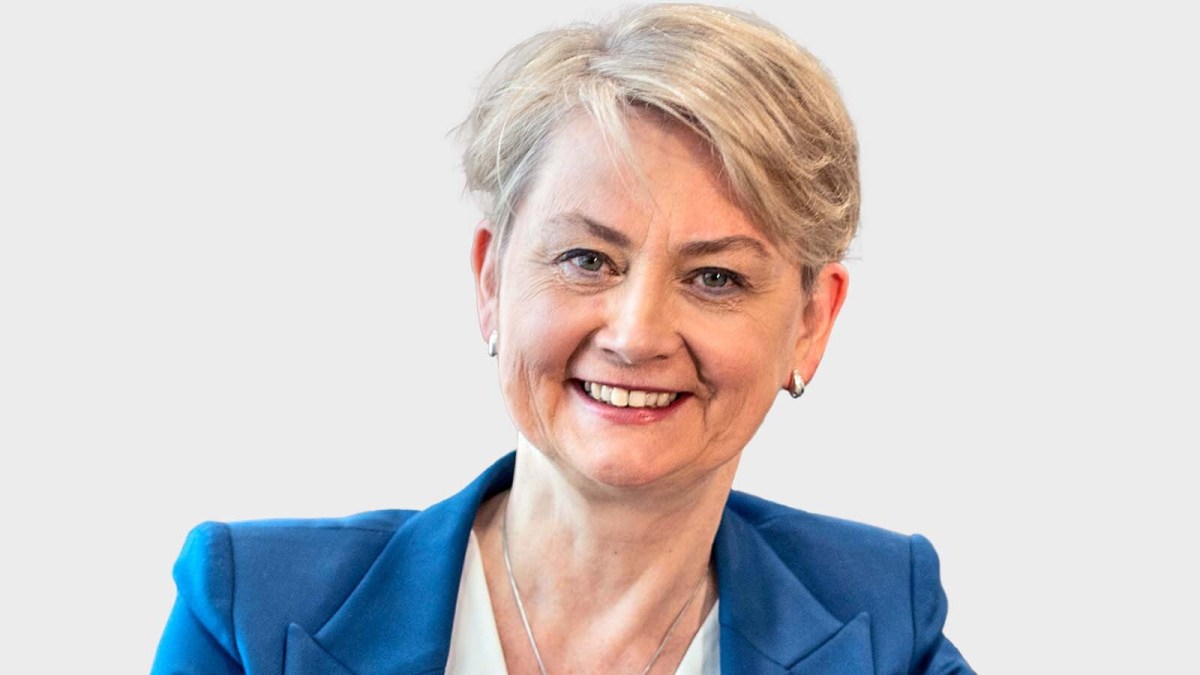The UK asylum system has been broken for far too long. Problems built up over many years will take time to fix — restoring order, reducing numbers, making sure the rules are respected and enforced, and ending the use of wasteful asylum hotels.
But the British way to do that is through practical hard work, not through ramping up the rhetoric or denigrating and attacking our hard-working police.
When I came into the Home Office, I found a system in chaos from top to bottom. Small boat gangs had been allowed to embed their criminal trade along the French coast. The asylum backlog was soaring. Illegal working was being ignored. And too many overseas workers and students were claiming UK asylum when their visas expired even though nothing had changed back home.
The previous Conservative government’s approach was to open asylum hotels across the country, reaching a peak of 400 less than two years ago, costing almost £9 million per day. Shockingly, before leaving office, they let asylum decision-making collapse by 70 per cent. And all this after legal immigration had quadrupled in just four years.
Little wonder that people across the country lost all confidence and demanded to know why they were paying the price for a system so out of control.
That does not mean they had lost compassion. Britain has a long and proud history of helping those fleeing persecution or conflict — including families from Ukraine, Syria and Hong Kong in the past decade. Alongside other countries, we will always do our bit to help those who need sanctuary.

Police at a hotel believed to be housing asylum seekers in Epping, Essex, where there have been recent demonstrations
LUCY NORTH/PA
But the system has to be controlled and managed, based on fair and properly enforced rules, not chaos and exploitation driven by criminal smuggler gangs.
That is why this government’s Plan for Change is about restoring order and control — strengthening border security, stepping up enforcement, reducing both legal and illegal migration, and ending asylum hotels altogether.
In our first year, we took immediate action to get a grip of the system while also laying the foundations for more fundamental reform. We doubled the rate of asylum decisions being made to start clearing the backlog, and removed 35,000 people with no right to be here. There has been a 28 per cent increase in enforced returns of failed asylum seekers and a 14 per cent increase in removals of foreign criminals.
We increased raids and arrests on illegal working by 50 per cent, and we began the hard graft of cutting asylum accommodation costs, reducing the annual hotel bill by £700 million in the last financial year, and working to reform the badly negotiated contracts we inherited to drive costs down further.
But this is just the start.
To radically reduce the problems with asylum accommodation, we need to bring numbers down and step up the pace of asylum reform. That means imposing further restrictions to clamp down on the number of people applying for asylum to extend their stay because their visa has run out.
The backlog of initial decisions is now down. But too many cases are being dragged out by long appeal delays or endless repeat applications. That can’t go on.
So we will overhaul the entire asylum appeals system we inherited, including new fast-track decisions and reforms to the way Article 8, or “right to family life”, claims are interpreted.

Migrants arriving on a small boat at Dungeness beach
HENRY NICHOLLS/AFP/GETTY IMAGES
We will keep accelerating enforcement and returns.
The rules must be respected and enforced, and those who seek sanctuary in our country must abide by our laws. So we’ll use mobile fingerprint units and digital ID cards for foreign nationals to take swifter action against those with no right to work or reside here. And we’ll change the law and strengthen public protection to crack down faster on criminality in the asylum system.
Our groundbreaking new pilot agreement with France will help reduce small boat crossings and — when it gets through parliament — our Border Security Bill will enable us to tackle illegal working by delivery drivers, seize the mobile phones of small boat migrants, and use new counter-terror powers against the smuggling gangs.
Inexplicably, the Conservatives and Reform have voted against those tougher enforcement measures — if they supported them now, we could speed up their passage into law.
We will only fix our asylum system through serious hard graft and genuine practical solutions. Shouting at each other online or on the streets won’t solve anything. And abusing the police is just a disgrace.
The British way is to roll our sleeves up and deal with the problem. To get the backlog cleared, get failed asylum seekers removed, and get each hotel closed.
Step by step, that’s what we’ll continue to do to restore control to the system, and rebuild confidence in our communities.
Yvette Cooper is home secretary
